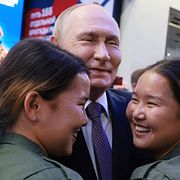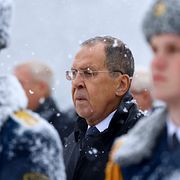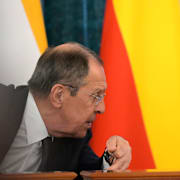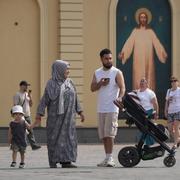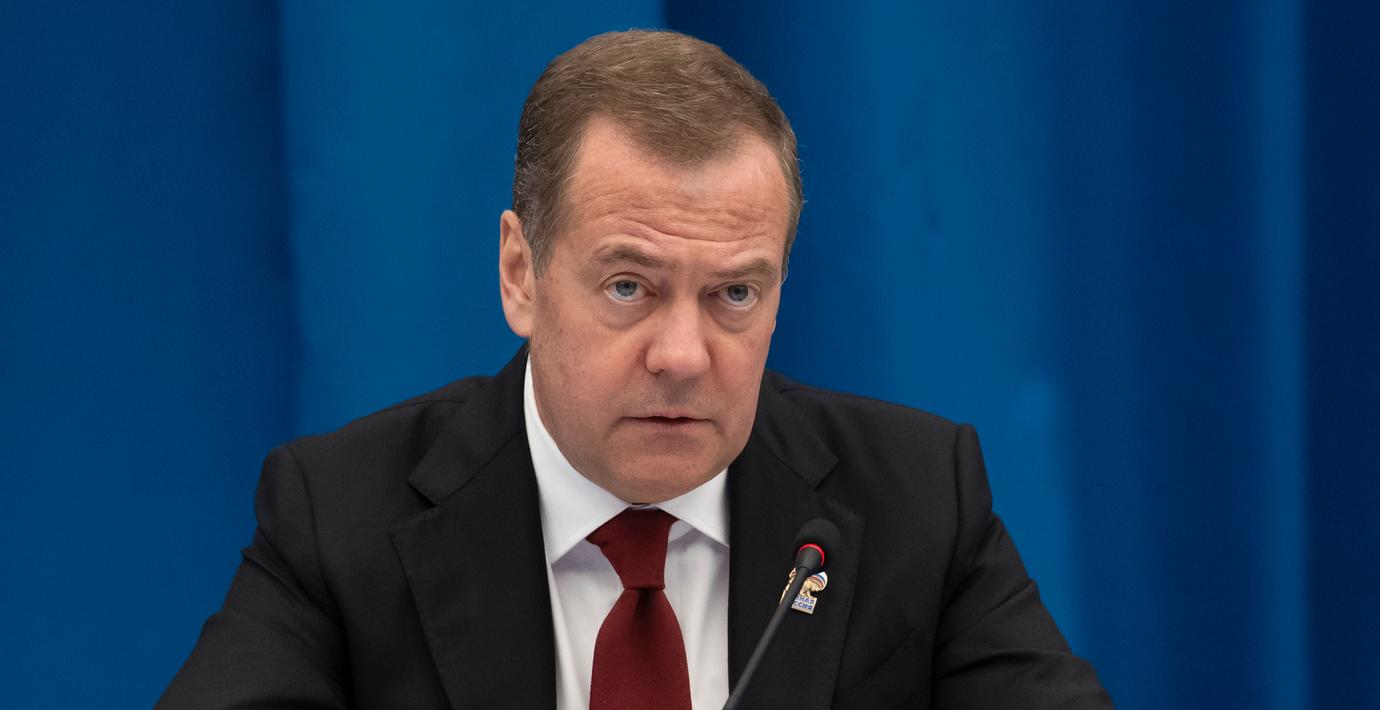
Medvedev: Fler länder kommer skaffa kärnvapen
Den före detta ryska presidenten Dmitrij Medvedev siar att allt fler länder i världen kommer att skaffa kärnvapen, rapporterar Reuters.
Han beskyller också väst för att ”pressa världen mot ett tredje världskrig”. Medvedev var president från 2008 till 2012 mellan Vladimir Putins två mandatperioder. Han kallade sig själv då för en ”moderniserare” men har sedan dess beskrivits som Kreml-lojalist, enligt Reuters.
”Världen kommer att skapa en ny, mer destruktiv typ av vapen, och nya länder kommer ha kärnvapenarsenaler”, skriver Medvedev på Telegram.
bakgrund
Dmitry Medvedev
Wikipedia (en)
Dmitry Anatolyevich Medvedev (born 14 September 1965) is a Russian politician who has been serving as deputy chairman of the Security Council of Russia since 2020. Medvedev was also the president of Russia from 2008 to 2012 and prime minister of Russia from 2012 to 2020.
Medvedev was elected president in the 2008 election. He was seen as more liberal than his predecessor Vladimir Putin, who was prime minister in Medvedev's presidency. Medvedev's agenda as president was a wide-ranging modernisation programme, aimed at modernising Russia's economy and society, and lessening the country's reliance on oil and gas. During Medvedev's tenure, the United States and Russia signed the New START nuclear arms reduction treaty. Russia won the Russo-Georgian War, and recovered from the Great Recession. Medvedev also launched an anti-corruption campaign, yet was later accused of corruption himself.
He served a single term in office and was succeeded by Putin following the 2012 presidential election. Putin then appointed Medvedev as prime minister. He resigned along with the rest of the government on 15 January 2020 to allow Putin to make sweeping constitutional changes and was succeeded by Mikhail Mishustin on 16 January 2020. Putin appointed Medvedev the same day to the new office of deputy chairman of the Security Council.
To some analysts, Medvedev's presidency seemed to promise positive changes both at home and in ties with the West, signaling "the possibility of a new, more liberal period in Russian politics". Since the lead up to the Russian invasion of Ukraine, he has adopted increasingly hawkish and anti-Western positions, and has repeatedly threatened the use of nuclear weapons in a break with his previous image as a moderate subordinate to Putin. According to analysts, he has limited influence in the Kremlin.
Omni är politiskt obundna och oberoende. Vi strävar efter att ge fler perspektiv på nyheterna. Har du frågor eller synpunkter kring vår rapportering? Kontakta redaktionen
